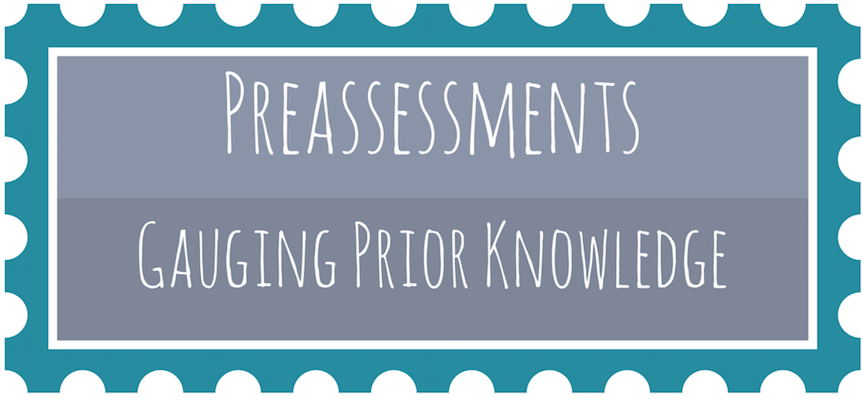The use of assessments is an essential tool teachers can utilize to understand student growth and development in specific content areas and through an academic term. Not only do teachers need assessments to see how their students are growing, but they need assessments to drive their future instruction for students. Teaching students based on their current understandings will build solid foundations for learning and a positive learning environment for both the students and the teacher. Teachers should assess both before, during, and after a unit to ensure all students have the chance to meet their potential on content.
Pre-Assessments

Pre-assessments are a great tool for informing instruction because they allow the teacher to see what students already know, which in turn shows how we can transfer new information from information already learned. Using pre-assessment data can also be helpful when gauging a student’s growth over time in a specific content area. While completing a math unit on Perimeter, Area, and Volume for 5th grade, I gave a pre-assessment that informed me that most students already had a good understanding of perimeter and area, but not volume. I was then able to more effectively plan my unit to focus more of my time on volume and a little less on perimeter and area. Lastly, pre-assessments can show what common misconceptions students have before teachers begin teaching. Common misconceptions in math happen often, like thinking that the perimeter of a shape has to be smaller than the area for example, and it is very important to discuss these misconceptions boldly to counter them.
Check out how I used a pre-assessment to form a 5th grade math unit here:
https://docs.google.com/document/d/16ywJisoFPXqW_m0jGdUXqxIECDE3eRaZyDPEBqgCsqM/edit?usp=sharing
Formative Assessments

Formative assessments during any unit will be important in noticing how well students are understanding content before the end of the unit comes around. Assessments taken during the unit will entail things like worksheets, discussions, task cards, and other general classwork or activities. Formative assessments can drive instruction just like pre-assessments can – the use of assessments can and should occasionally change lesson plans. If halfway through a unit it becomes clear that most students did not gain the initial understanding of the base algorithm to a math concept, then it will be necessary for the teacher to take a step back with the students reteach the algorithm before moving forward. Formative assessments can show educators how students are doing independently, and in turn will show teachers what groups need more instruction in different areas.

Summative Assessments

Lastly, assessments at the end of a unit, or summative assessments, will serve as indicators for student growth and overall understanding of the content. Assessments taken after the unit content has been taught are important in order to conclude a unit before moving on to the next unit. Summative assessments can also be used to record what students did and did not understand from the unit, which will let the teacher know what concepts they need to follow up on with the students. Assessments done at the end of the unit should not be the only assessments taken into account when viewing a student’s understanding or growth. It is important to take assessments done throughout the unit when gauging a student’s understanding of any subject.
